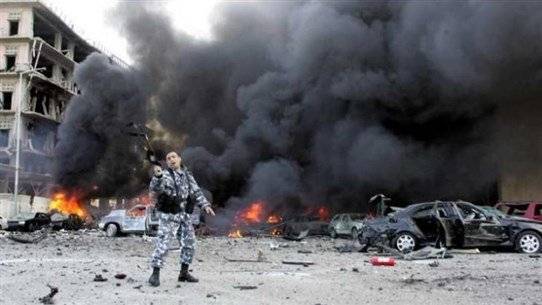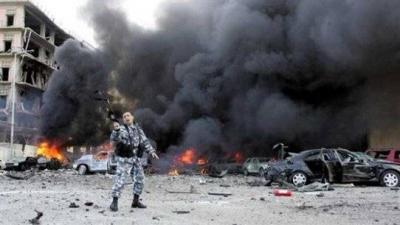Since the mid-20th century, crime in Lebanon has often remained unregistered, despite the fact that many perpetrators are frequently known by name. The deterioration of the state and the judiciary has turned assassinations into a common tool in political life, without accountability. Numerous examples exist, from the assassinations of Kamal Jumblatt, Ma'ruf Saad, Riyad Taha, and Bashir Gemayel, to Rafik Hariri and all the martyrs of the Cedar Revolution, and most recently, the Port explosion, which resulted in the deaths of Joe Boujani, Colonel Munir Abu Rjeili, Luqman Salim, and many others. The majority of these crimes, which remain unpunished, have led Lebanon to "undoubtedly rank first in undisclosed crimes and unpunished perpetrators," as noted in a striking tweet by George Okaye, a member of the Strong Republic bloc.
In a follow-up with MTV, Okaye revealed that "most of the investigations into political assassinations remain devoid of any paperwork, evidence, or leads, and many investigating judges assigned to these cases have made no actual progress in the investigations. We have not even reached the indictment stage." He noted that the Higher Judicial Council, established to prosecute major crimes, especially political or terrorist ones, which threaten state security, does not have a record of many cases or rulings. "All this confirms this theory, and we see that all cases of financial crimes, political crimes, and specifically corruption, lack serious investigations. This is due to two reasons: firstly, the system itself generates corruption, and the judiciary is either absent, weak, paralyzed, or distracted by matters unrelated to justice."
Okaye added, "All these reasons confirm that Lebanon is one of the countries in the world most affected by major crimes whose perpetrators are not pursued, particularly regarding corruption and political crimes. This has made us a failed state and has caused the collapse since uncurbed corruption sets the stage for even greater and wider corruption, while political crimes where perpetrators remain undiscovered keep political life in Lebanon perpetually under the sway of fear, repression, and physical persecution."
Even Lebanon's recourse to the international court after Hariri's assassination yielded no results, as the trial is complex, lengthy, and burdensome, and if the internal authorities do not enforce the ruling, it is futile, according to Okaye.
Looking back at Lebanon's modern history, it becomes clear that all crimes, even those that occurred before the Lebanese Civil War, met the same fate. Here, Okaye comments: "We did not have a comprehensive security judicial apparatus, nor independence for the judicial security apparatus from political authority. Perpetrators always enjoyed political and security cover that protected them and ensured they would not be prosecuted, much like the mafia. Some factions in Lebanon operate similarly to the Italian mafia, committing various violations and crimes without the Italian system being able to pursue them until the judiciary there rose up and paid the price in blood, as judges were martyred in the fight against the mafia's power."
But what about the mafia in Lebanon? Okaye responds: "The Lebanese political mafia is not held accountable by the people, who repeatedly elect its prominent figures, and the judiciary is unable to confront it. Thus, the political authority is not in any rush to enact a law on judicial independence, as recently demonstrated, since the approval of such a law could be the first step toward securing independence for some brave judges who do not care for political authority or appeasement. However, to enable them to confront this authority, independence must be ensured so that they do not face revenge through placements, appointments, and their future livelihoods."
After a new breath of life in the parliament, is there hope for the approval of this law soon? Okaye confirms that "the law on judicial independence is a litmus test for all parliamentary blocs, as the deadline given to the Ministry of Justice to re-evaluate the proposal has expired, and we are awaiting the Ministry of Justice's remarks." He revealed, "We urged the caretaker Prime Minister Najib Mikati to push for this law to be returned to parliament for approval. He is concerned about this request and has shown interest, and we are awaiting this matter." He emphasized that the caretaker government does not prevent these remarks from being referred, as this is a routine matter that does not require an established government.




